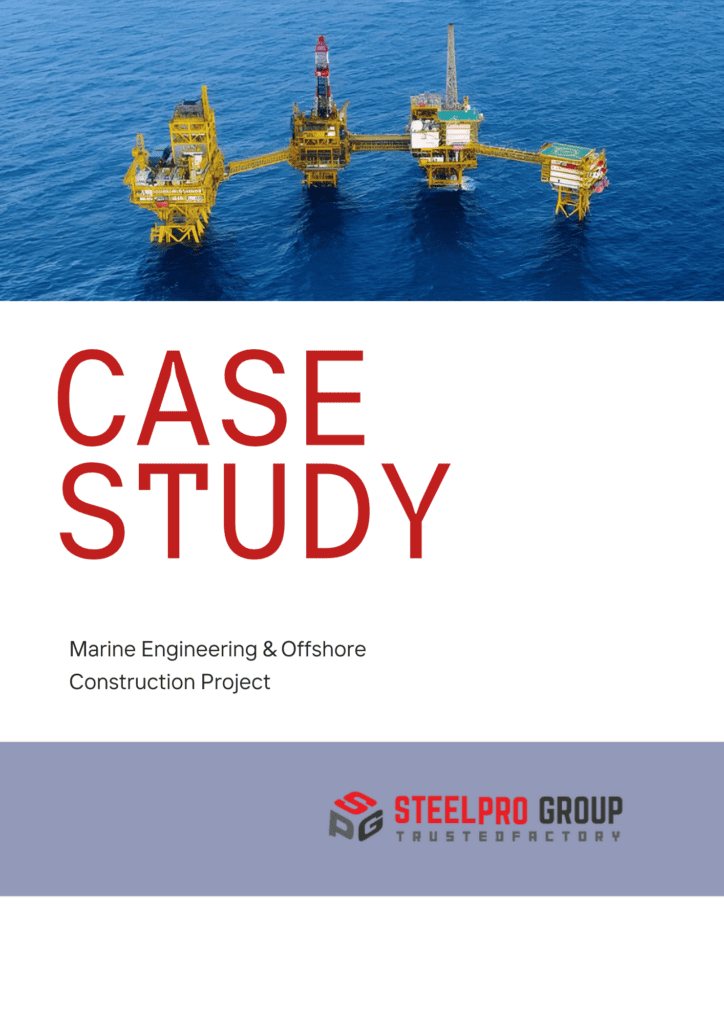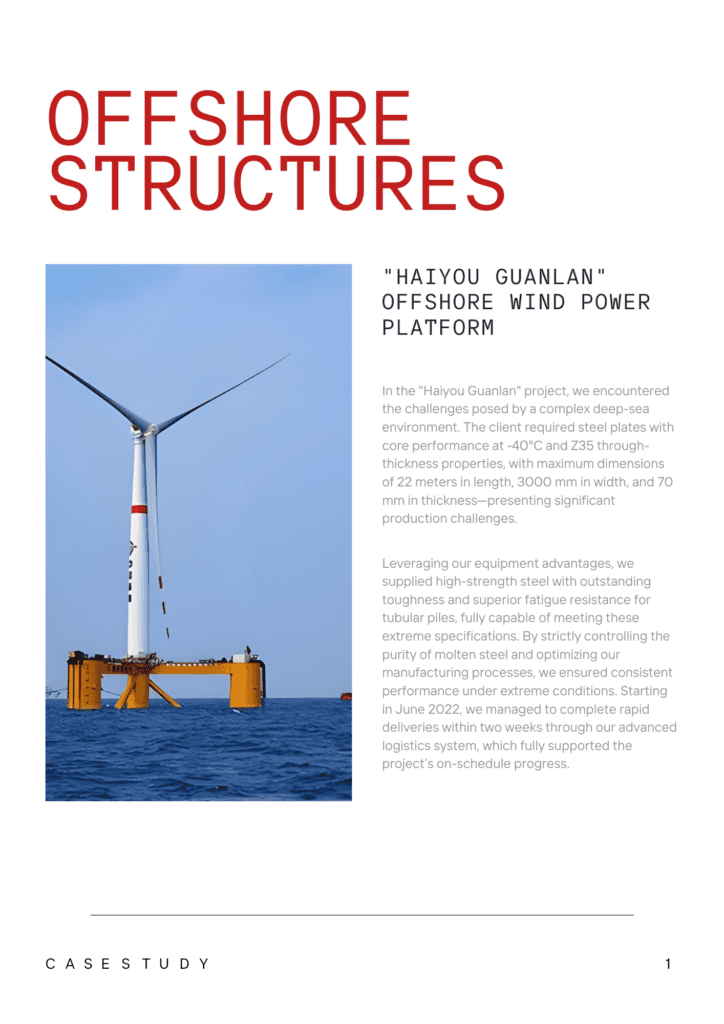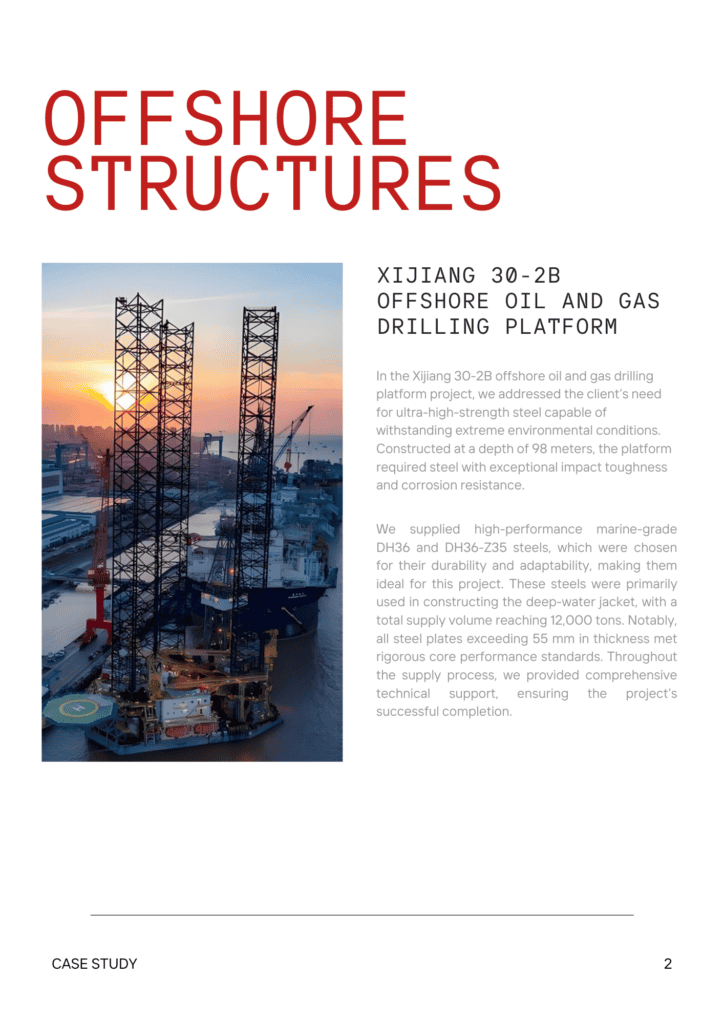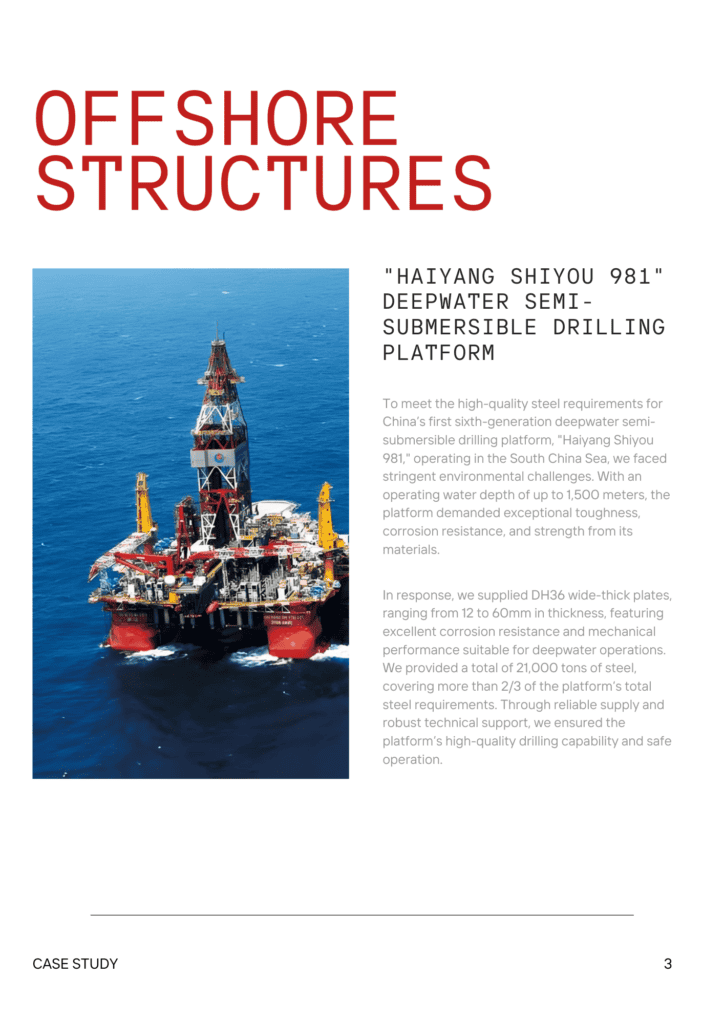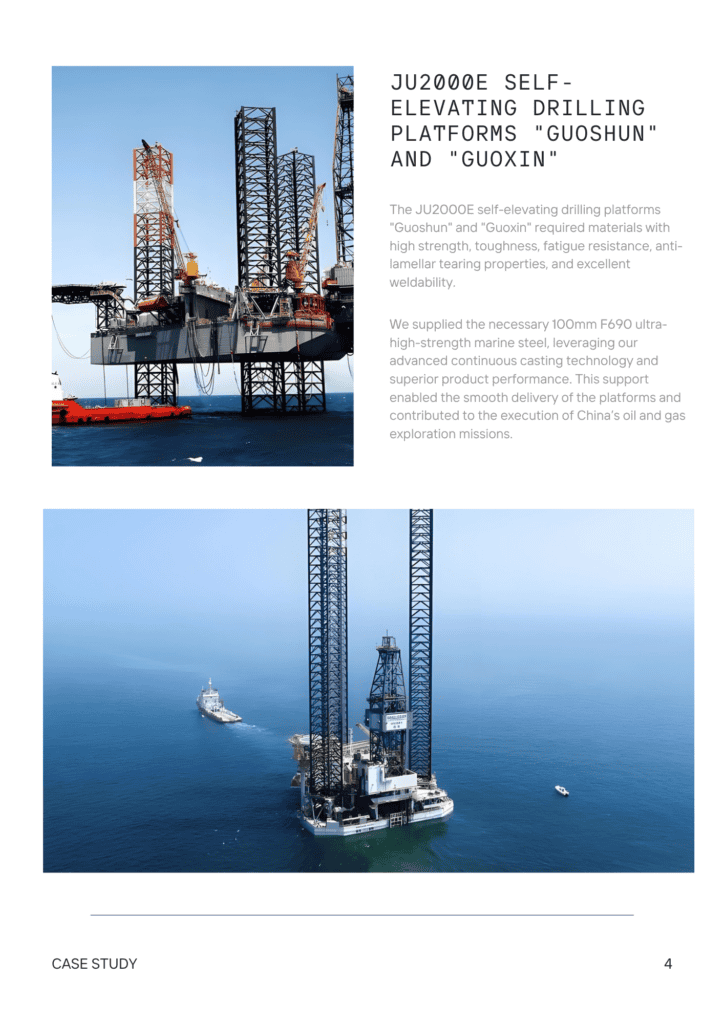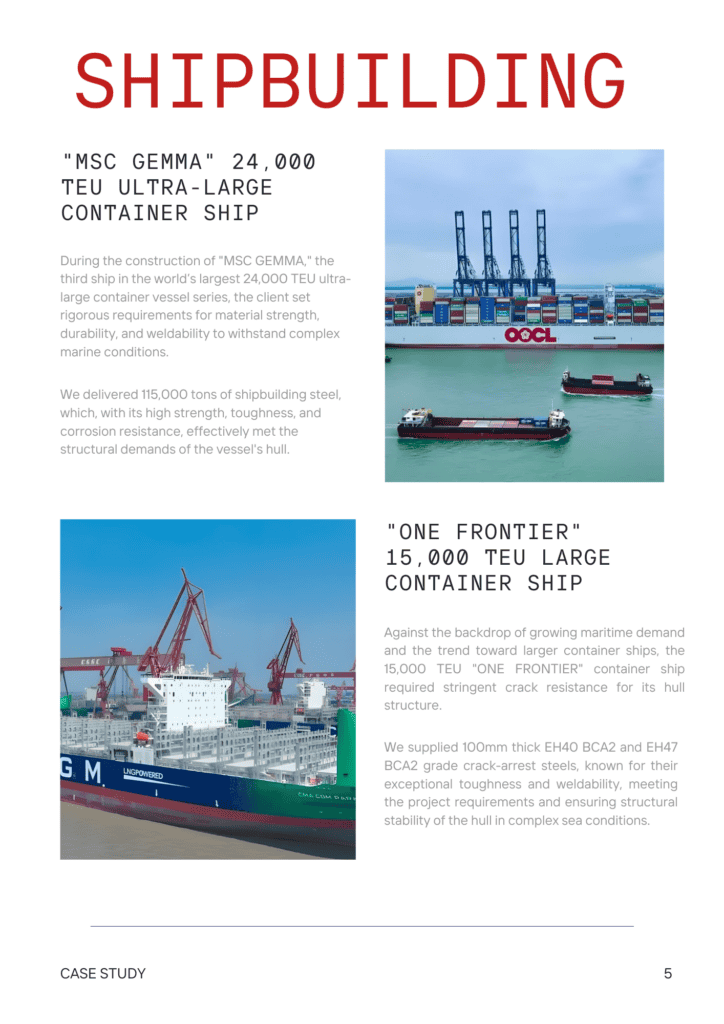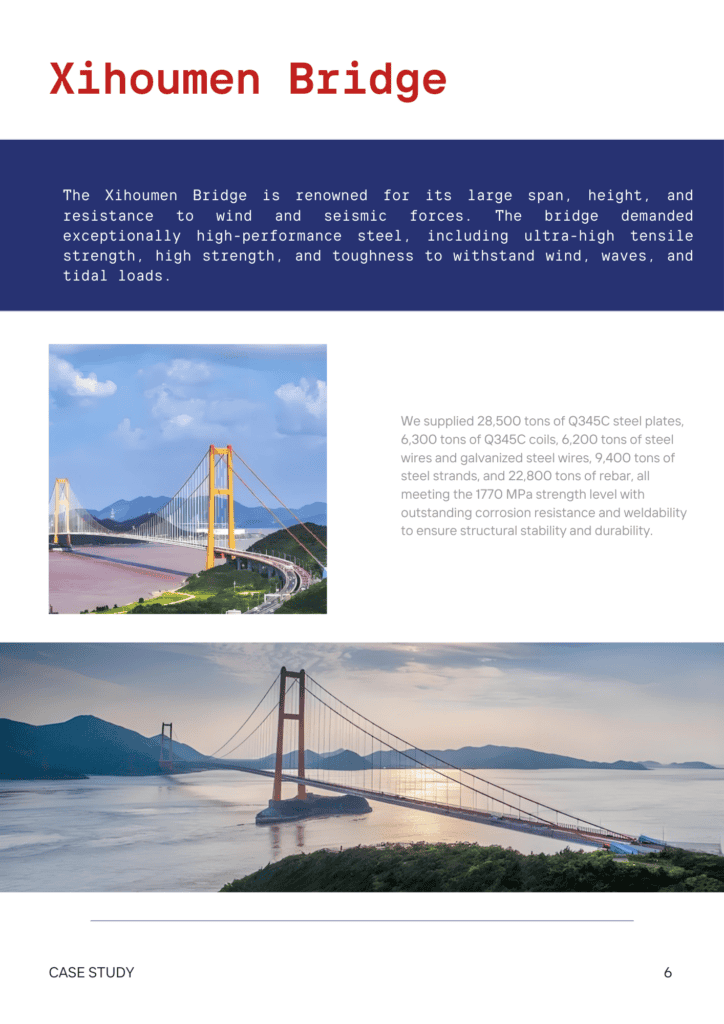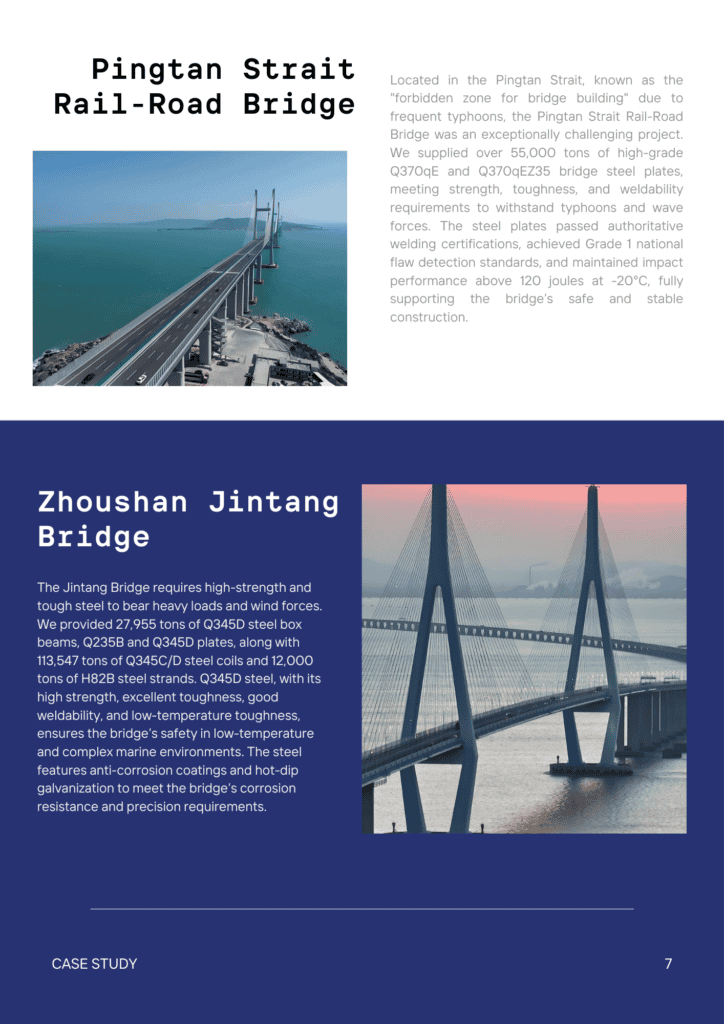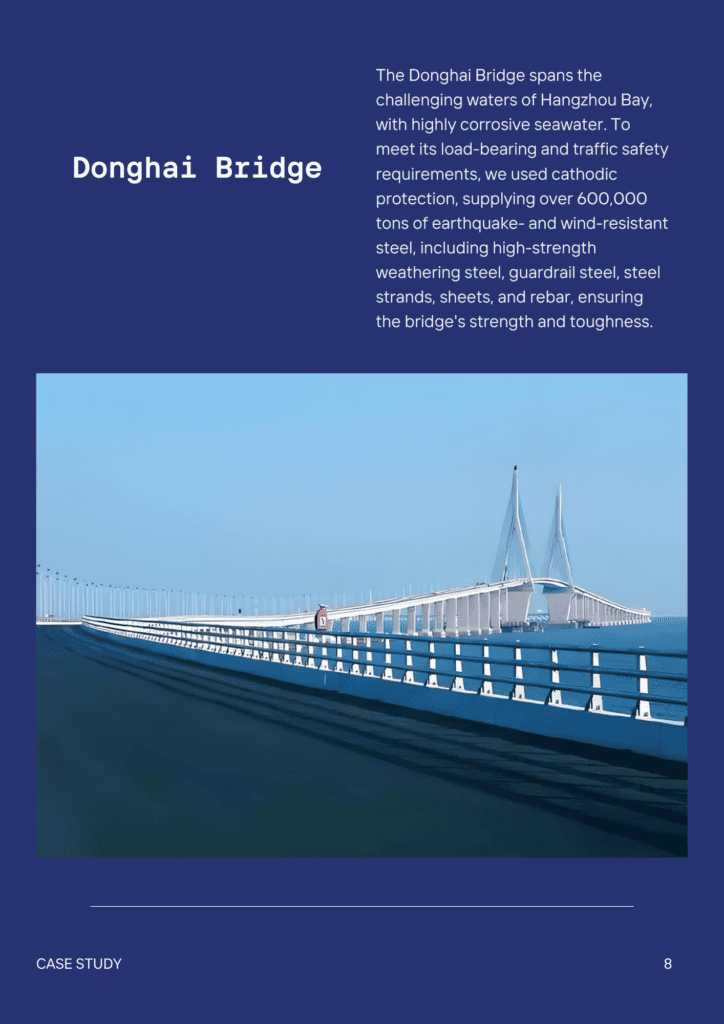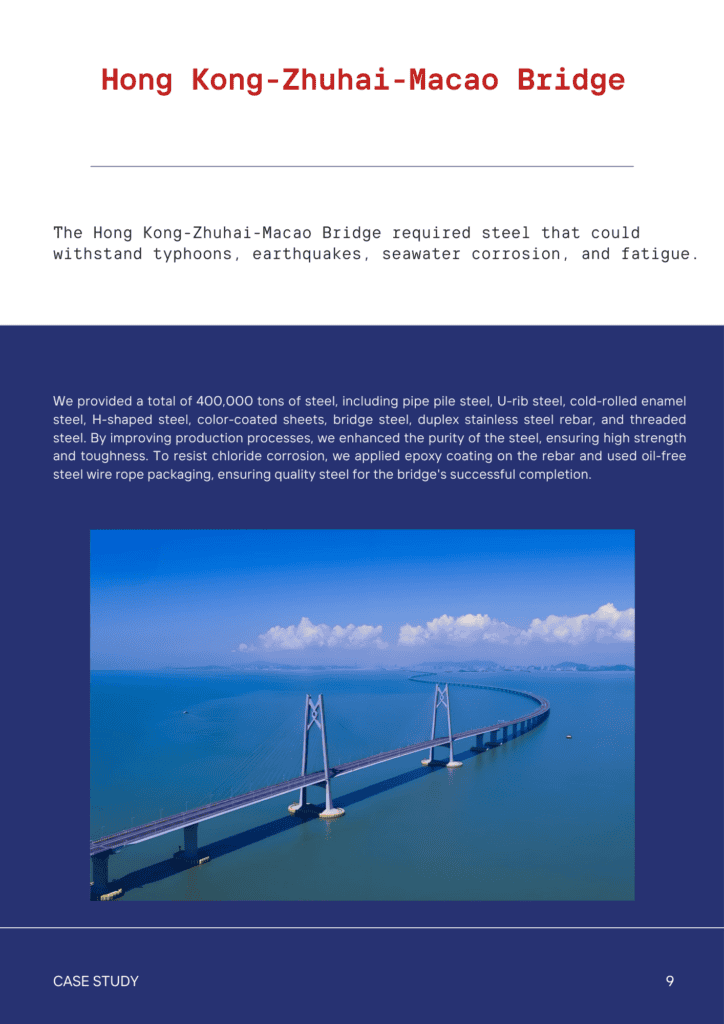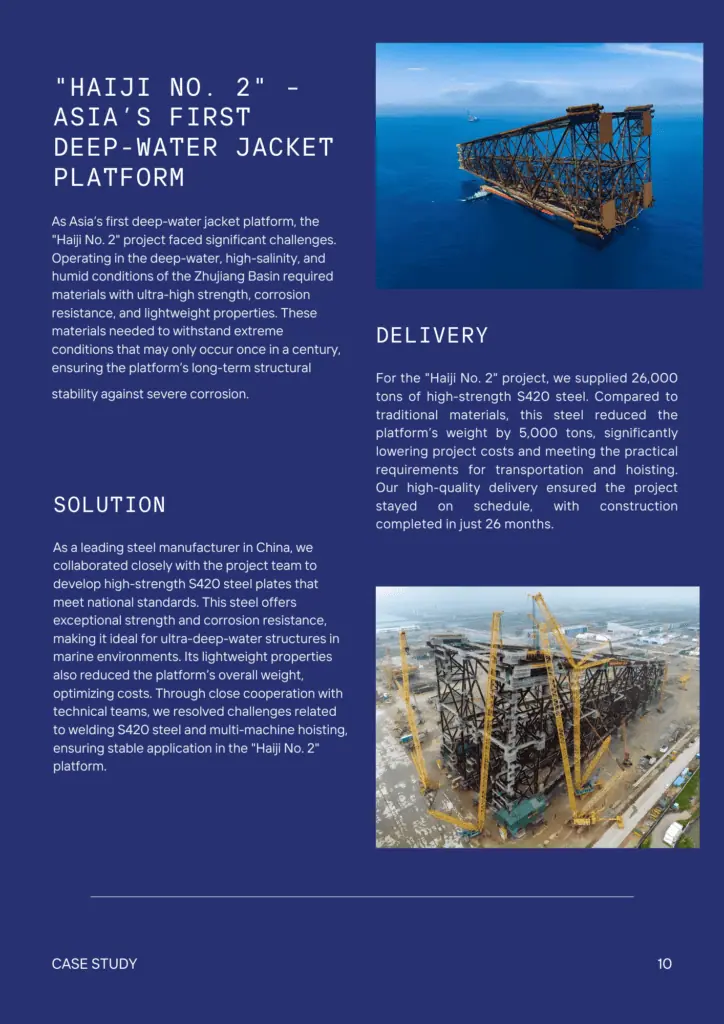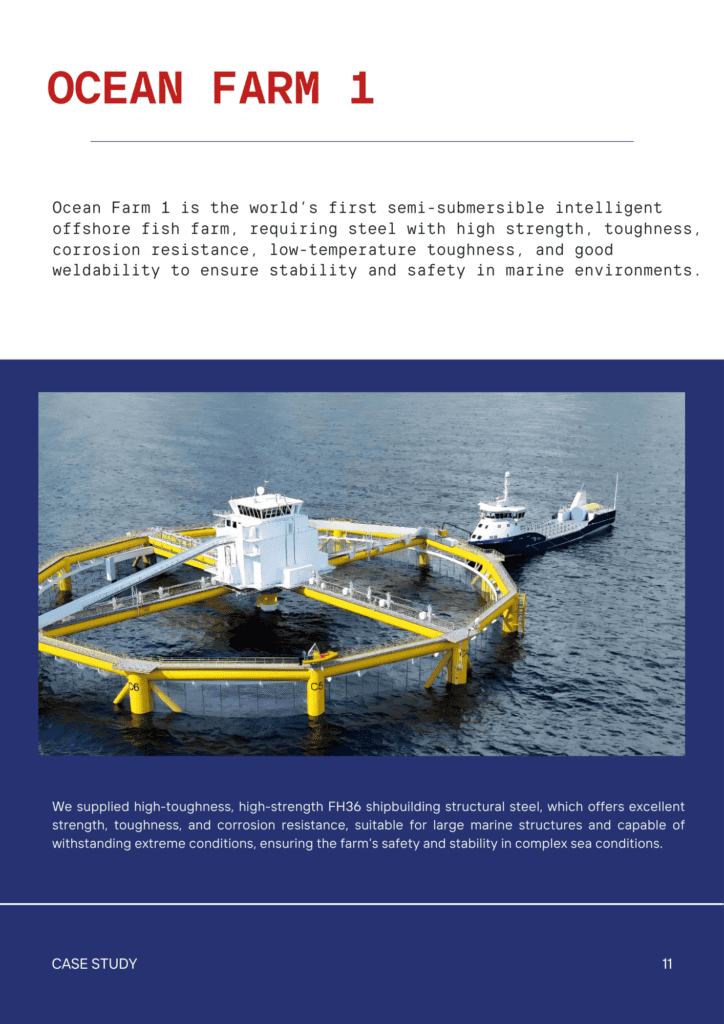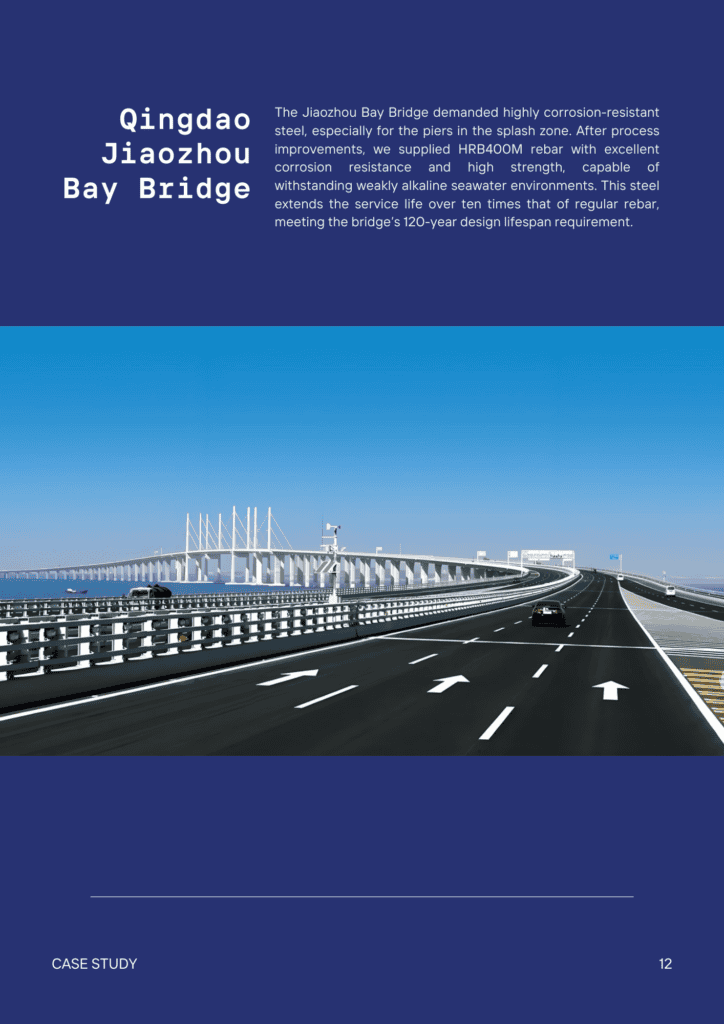Highway & Bridge Structural steel
As infrastructure demands rise, our premium steel offers exceptional strength, corrosion resistance, and load-bearing capabilities, meeting the rigorous standards of modern highway and bridge engineering.
HIGH STRENGTH
AND DURABILITY
Our structural steel and steel road plates are designed for heavy loads and harsh conditions, ensuring the construction of durable and safe bridges and highways. They have high yield strengths(often exceeding 250 MPa).
CORROSION RESISTANCE
Our road plates and other construction steel components are treated to resist corrosion, enhancing their properties and extending their lifespan, which reduces the need for frequent maintenance.
DESIGN FLEXIBILITY
The manufacture of steel plates and structural components allows for customization, meeting diverse engineering needs, and ensuring reliable supply from various suppliers for different construction projects.
Type of Highway & Bridge Structural Steel
- Carbon Steel: Carbon steel, with a yield strength of around 250 MPa, is affordable and versatile. It’s commonly used for various structural components like plates and road plates in highway and bridge construction.
- HSLA Steel: High-Strength Low-Alloy (HSLA) steel offers yield strengths from 345 to 690 MPa. It’s ideal for long-span bridges and heavy loads due to its high strength-to-weight ratio, reducing overall structure weight.
- Weathering Steel (Corten Steel): Weathering steel, with a yield strength of around 345 MPa, forms a protective rust layer when exposed. This reduces maintenance needs, making it suitable for outdoor structures like bridges.
- Quenched and Tempered Steel: Quenched and tempered steel exceeds 690 MPa in yield strength, with grades like Q500q (500 MPa) and Q600q (600 MPa). It’s used in critical components requiring high strength and durability.
- Stainless Steel: Stainless steel, with yield strengths of 250 to 450 MPa, is corrosion-resistant. It’s ideal for coastal or industrial areas, ensuring long-lasting structures with low maintenance.
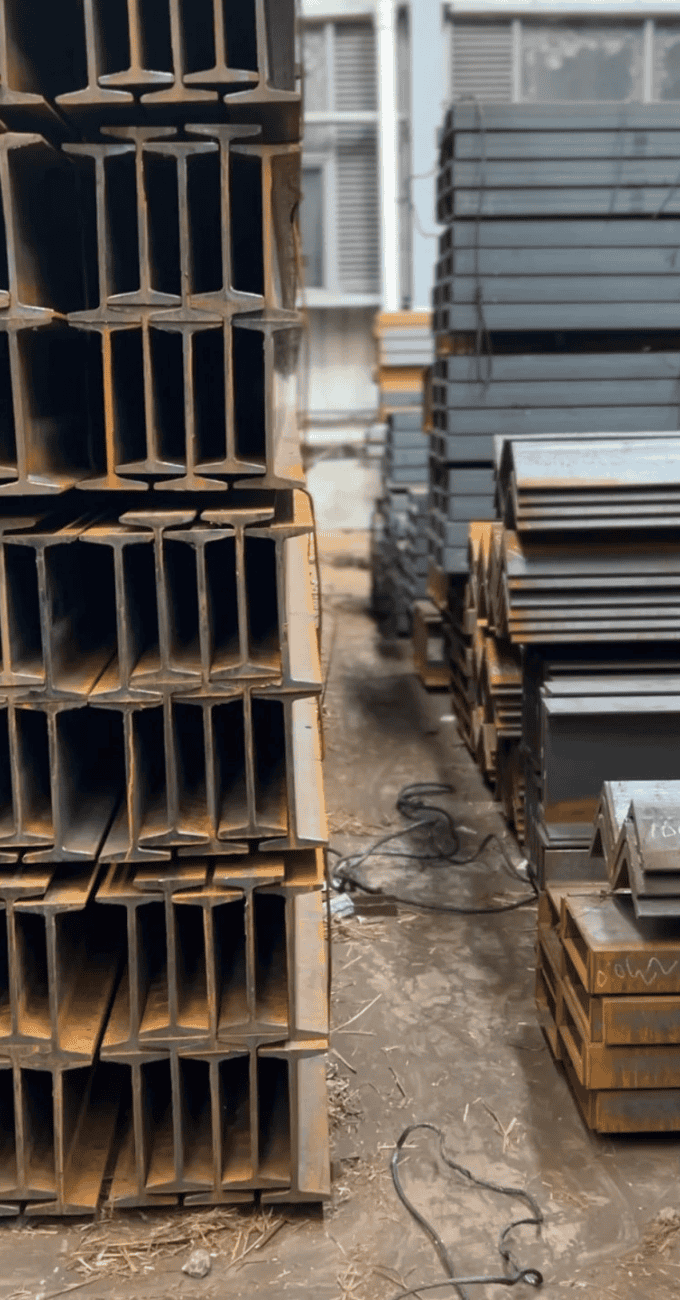
Applications
What are the best types of steel for highway and bridge construction?
High-strength, Low-Alloy (HSLA), Weathering (Corten), and Quenched and Tempered steels are preferred for their strength, durability, and corrosion resistance, making them ideal choices for road and bridge building steel.
How are steel components fabricated for road and bridge construction?
Fabrication involves cutting, welding, and assembling steel components, ensuring quality and precision for reliable structures using high-quality construction materials.
What are the key considerations during the erection of steel structures in bridges and highways?
Key practices include precise assembly, proper alignment, and secure fastening of steel products to ensure safety and stability on-site.
How does the choice of steel impact the overall durability and maintenance of highway and bridge structures?
The choice of steel impacts long-term performance; weathering and stainless steels offer better corrosion resistance and lower maintenance for components like joists and beams.
What are the common challenges in steel construction for highways and bridges, and how can they be addressed?
Address issues like environmental exposure and material quality through careful planning, quality control, and the use of appropriate steel grades to ensure the steel used meets all necessary standards.


